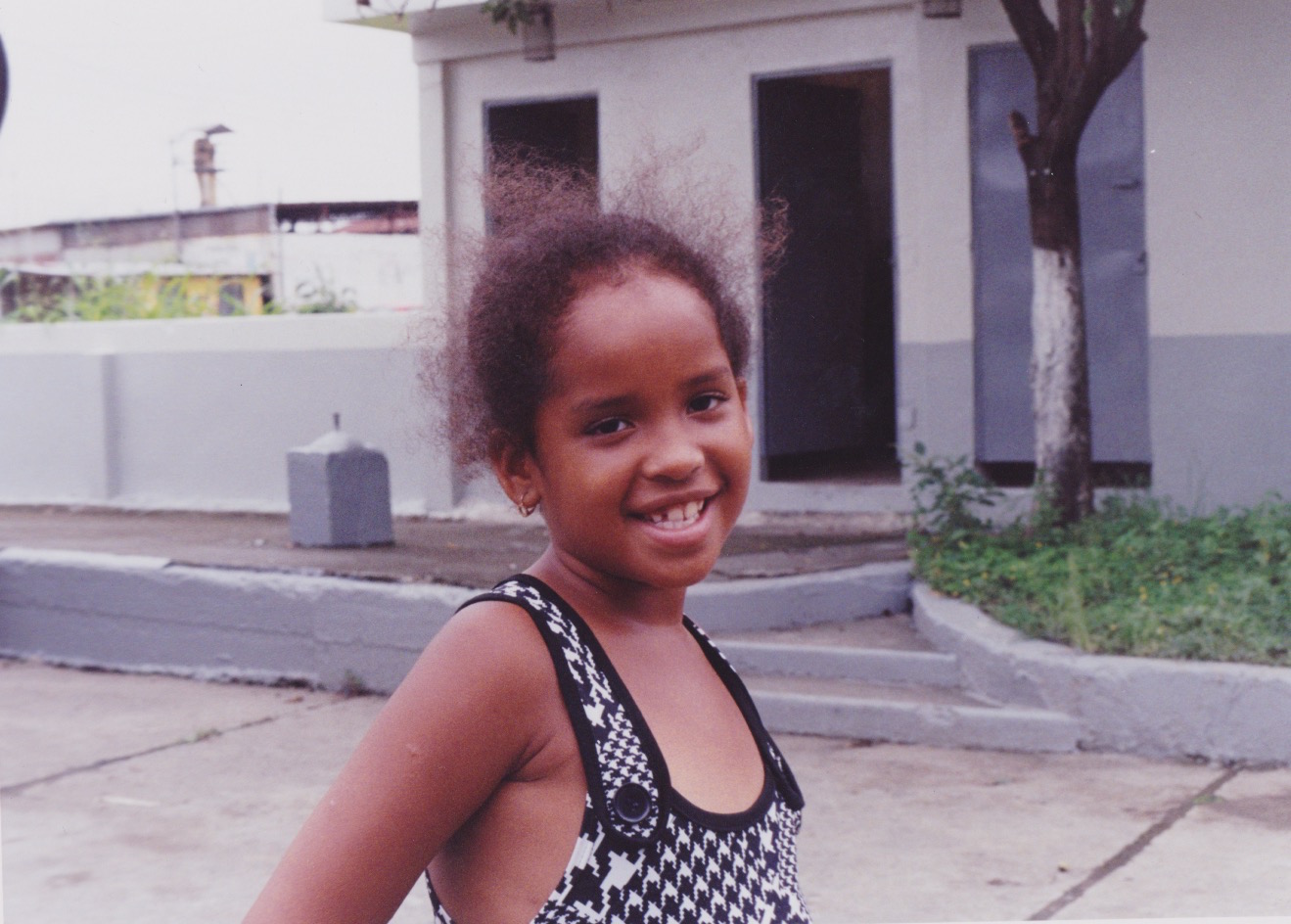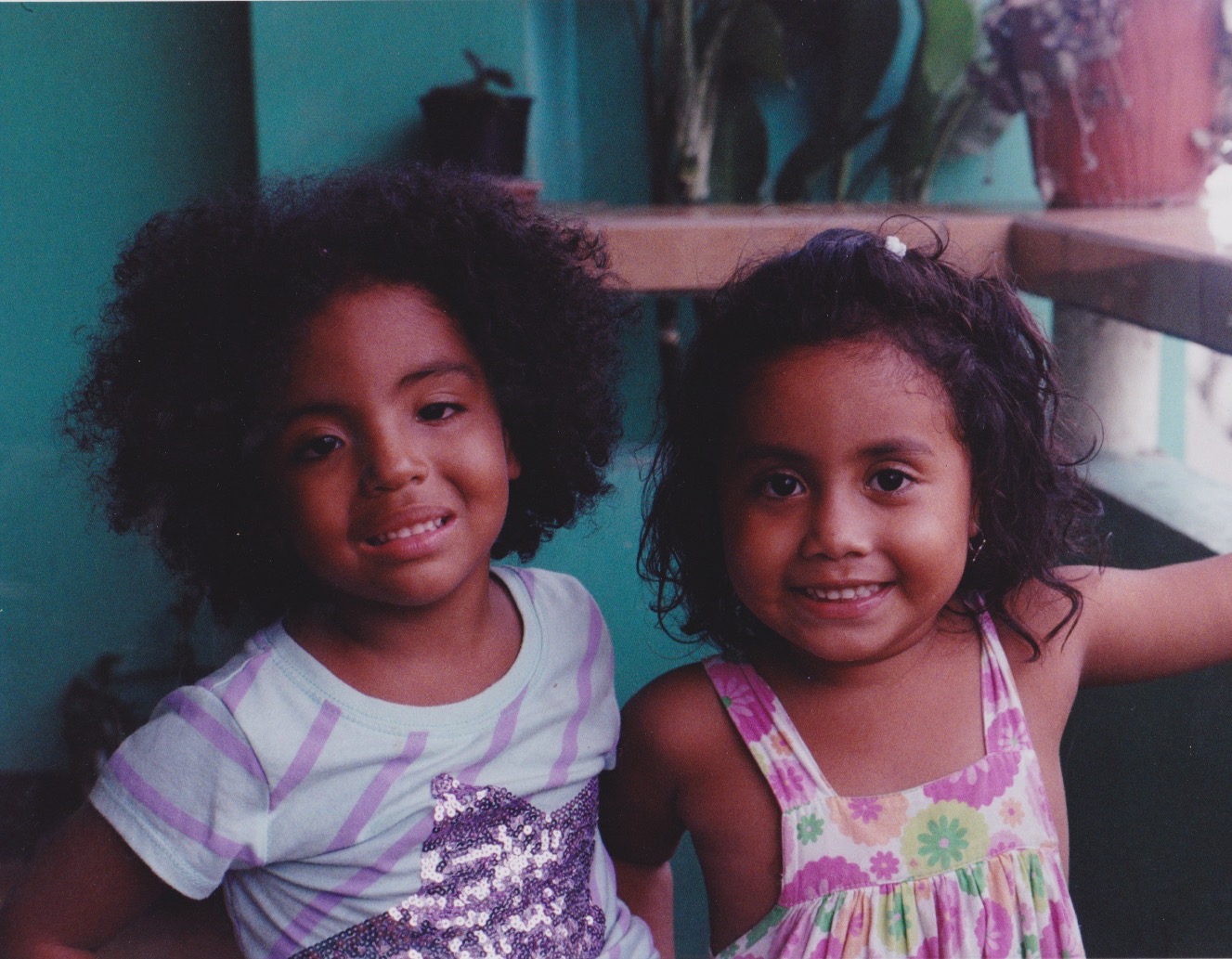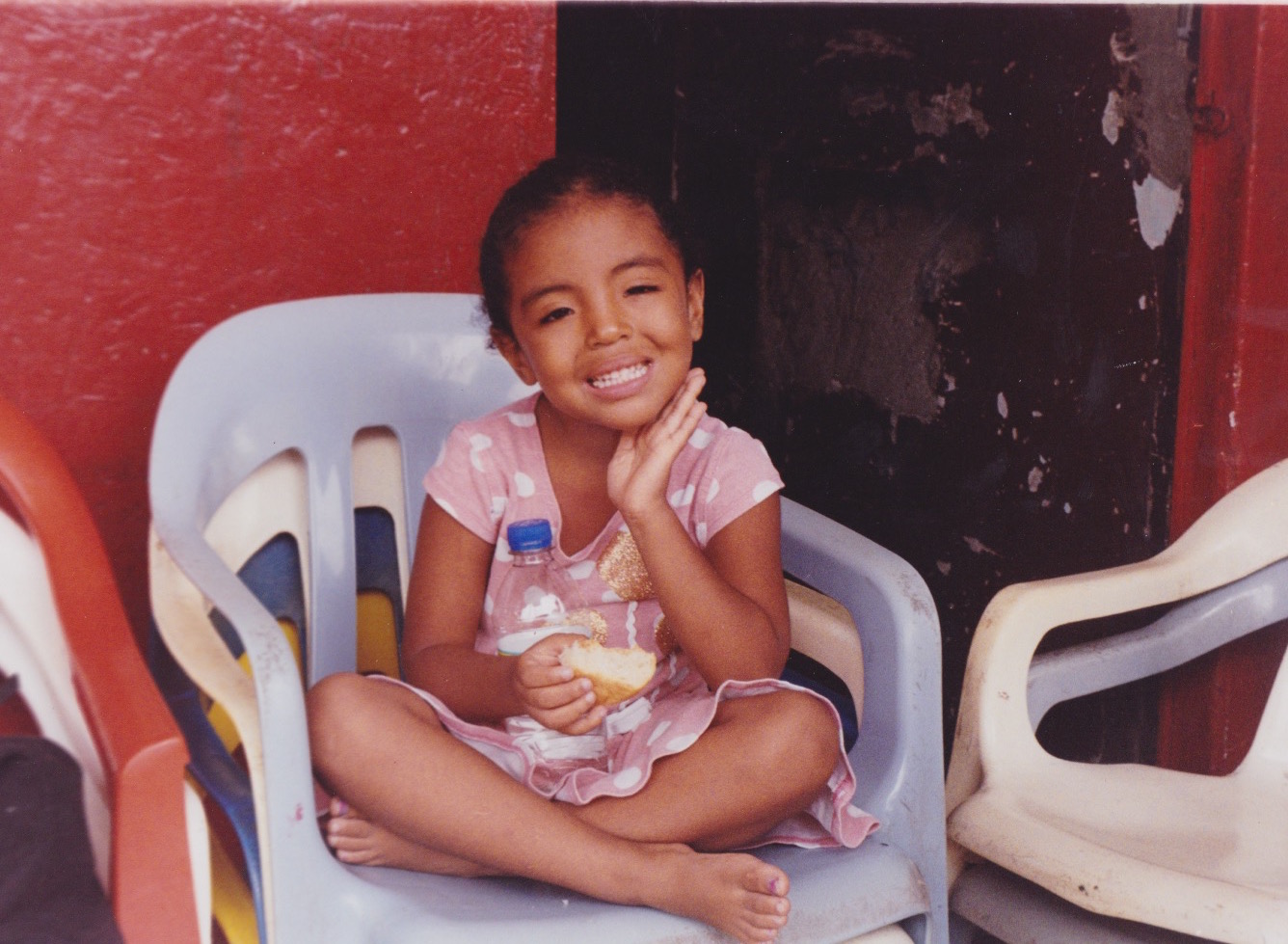La Otra Cara Latina
When I was an Imagemaker at ICP (International Center of Photography) back in 2016, I created this photo essay in honor of the women who raised me, the girls who came after me, half of who I am, and finding diasporic family in NJ/NY’s Afro Latine community.

Mami
When I was an Imagemaker at ICP (International Center of Photography) back in 2016, I created this photo essay in honor of the women who raised me, the girls who came after me, half of who I am, and finding diasporic family in NJ/NY’s Afro Latine community.

Vilma Julieta, Ecuador

Tia Soila, Ecuador

Tia Esther, Ecuador

Ingrid, Colombia
"I was born in Cali, Colombia and raised in Elizabeth, New Jersey. I’m a proud working mother, student, salsa dancer and also actress/model."
"I am Afro Latina, unique, and comfortable with my skin. Being Afro Latina makes me diverse in nation because everywhere I go I get the opportunity to become one of them, I get to be asked if I am African, Haitian, or other black countries that to me is a compliment because black is universal."
"I just love being black, it's just so beautiful even though people always get confused or don't understand when I say I'm Colombian. I come from a poor little village called Villa Clarita, it's close to Cali, La Ciudad De La Salsa. I'm very proud of where I come from. I don't come from a wealthy household but I will always be rich with family and the loving support system I have behind me."

Casandra, Puerto Rico (1/2)
"I'm from East Harlem, NY and I’m a Self Proclaimed Restaurant Critic at FoodBeforeLove.com and I’m also the Senior Consultant at TheRosarioGroup.co."
"Every day I embrace myself. I am unapologetically me, daily. That alone makes me a proud Afro Latina. Knowing that I’m an Afro Descendant and loving all the parts of me that say so. It cannot be denied and I embrace that. I let my hair, be my hair. I bask in the sunlight because I know it makes my skin rich. I embrace mi cultura and I do my best to educate myself on the parts of me and my history, that I don’t quite know yet but know it makes me who I am. But I also share my pride every chance I get so that the world knows, we are still here and we have a story that can’t be erased."

Joyce, Ecuador
Don’t be fooled, Ecuador has a large (but still small compared to other countries) black population, predominantly in the northern west region in Esmeraldas (70%) along with the Chota valley and Imbabura Province.

Mingie, Puerto Rico and Cuba (2/2)
"Spanish being my first language and walking into school on the first day with corn rolls in my hair really made me the center of attention.
Being that both my parents speak Spanish, I learned English and picked up a lot of diversity from my neighbors who are all Caribbean and have really influenced me greatly. Being in the mix of different music, languages, food, hair styles and clothing played a good role on allowing me to explore my roots and always embrace it."

Mingie, Puerto Rico and Cuba (1/2)
"I'm from QUEENS, New York, I am a visual artist and I make a abundance of different crafts, I enjoy painting on various items such as canvas, clothing, footwear, furniture and murals. I create everyday."
"I’m proud to be a Afro Latina because knowing that I hold so much culture and diversity within my roots truly is something empowering. I demonstrate it within my daily life and throughout my art. "

Jenay, Panama
Blogger/Content Creator for #IAMENOUGH and aspiring Journalist from the Bronx, NY.
I am a proud Afro-Latina because I come from a community of women who are strong, cultured, woke and most of all magical. Being able to embrace my blended culture is truly imperative. I am a product of the diaspora and celebrating my roots is one that will always be close to home for me. Being Afro-Latina allows me to reclaim my African and Latin American roots. I take so much pride in my Afro-Latina identity and that feeling will never die! I always claimed my blackness because I grew up to a strong black mother and there was no way I could deny my roots. I wasn’t as conscious and woke as I am now growing up. This is because I went beyond the text books and what they taught us about “Black History”. It was either about slavery, war with whites or about us being oppressed. I was interested in digging deeper into our history. I wanted to learn about the Art, Music, Writers and the Speeches. My Black roots are just as important as Latina roots and as I get older I will continue to recognize both. But I do embrace my blackness more than ever before.
When I see Latinos in media I see “white” as close to white as they can get that.
Latin media is completely “white washed” and if you see Latinos in American media its Jennifer Lopez or Sofia Vergara for a long time. We now begin to see women like Gina Rodriguez play a Latina role and not look like the typical Latina woman as well as women like Dascha Polanco. I almost never see darker/ Afro-Latinos in Latin media and Black Latinos in American television because they are playing predominantly African-American roles. I ask myself where we are represented at all because we exist. We need more recognition in media on every platform from Television, Radio, Music and Media & Communications. The only way to improve it is for our community to use their platforms more and to put ourselves out there to raise awareness about this topic. #IAmEnough recently released a piece about Afro-Latinas in Media and highlighting women who are representing our community: Jada Gomez at Interactive One, Marjua Estevez at Vibe and Raquel Dailey at Boriqua Chicks.

María Fernanda, Ecuador
"I grew up in touch with my blackness and out of touch with my latinidad. I remember thinking I was not part of Latinx culture because of my skin."
I actually don’t know where I was born. I say Ecuador, but I’m not entirely sure. I was raised in D.C. and the orphanage I was at before is in Guayaquil. Even if I find out I wasn’t physically born in Guayaquil, there’s a part of me that will always pay homage. At three, I was adopted and I moved to D.C. There, my blackness could thrive early in my life, in Chocolate City—which is now more white chocolate, but that's another conversation; Nineties-D.C. was crucial for my growth as someone transnationally and transracially adopted.
I grew up in touch with my blackness and out of touch with my latinidad. I remember thinking I was not part of Latinx culture because of my skin. Throughout my adolescence, my peers and strangers would point to my skin and my figure and say this was why I was hard to identify as ‘latino.’ When I spoke Spanish, I still felt like a stranger. As a kid, I loved my skin from the jump and got frustrated when anyone tripped over it. Strangers asked, “What are you mixed with?” or asserted “You don’t look like any latinos I know." Not being Caribbean, African American, African, or BlackEuropean, I didn’t claim the word black until I lived in Buenos Aires.
From middle school and on, my peers told me my hair wasn’t kinky enough and my features looked ‘too latina’ to be black. I thought by claiming my blackness I would take up space that wasn’t for me. Visiting Ecuador and Panama, I started seeing people who looked like me and recognized that there were many blacknesses. In my six months in Buenos Aires, Dominicans who looked just like me called me negra and morena. It was so loving and almost revolutionary for them to liken me to their sisters and mothers and aunties and for all of us to be collectively afrodescendientes. We kept in touch and started gathering for holidays and cooking together; it was so beautiful for me.
I'm someone who takes up space. A lot of it. Before I could own that and call myself BlackEcuatoriana, I felt pressure of the Eurocentric idea of womanhood, that told me to be soft, to quiet, to shrink in the U.S. society. But ‘being small,’ wasn’t me. Nor was it supposed to be. Once I could identify the box whiteness had placed over my identities, I was able to expand in every direction. My blackness is inclusive of thick, indigenous hair. My latinidad is inclusive of darker skin. I am of these two attributes and so very much more. Colorism allows mainstream and social media to place lighter skin at the forefront of even AfroLatinx media.
You know, I read and hear a lot of people cite Sofia Vergara when discussing Latinx in media and I don’t think we add that Sofia Vergara does not even look like Sofia Vergara. She is a natural blonde who spent much of her life walking around as a narrow figure wishing she was more curvaceous. I think what is more interesting about this conversation of mainstream media is that social media affords latinx people of all backgrounds a wider scope. I scroll and come across more black people across the diaspora and spanish speakers with my skin tone, often deeper, expressing themselves in all kinds of ways. And we all get to be in conversation with each other.
Of course, social media is, in part, about people creating mirrors in which to see themselves, which is valuable regardless if it is mainstream or not; it is real. Off the top of my head, I think writers like Es Mi Cultura newsletter curator Tamika Burgess, BuzzFeed producer Julissa Calderon (LaJulissa), Closure producer Angela Tucker, Well-Read Black Girl founder Glory Edim—I could go on!—are crafting physical and virtual spaces where the survival of everyday, prismatic lives of BlackLatinx people are prioritized and honored.
This is why my poetry and Candela are so important to me. I co-founded, with poet Darrel Alejandro Holnes, Candela Writers Workshop, a monthly writing workshop open to poets who self-identify as persons of African descent and/or as Black with a connection to Latin American and/or U.S. Latinx culture. Candela for me is to garden a space where artists can create and see themselves look back, where curious, engaged, and self-determined writers of various communities can explore one's interest in poetry, find or exchange resources, and strengthen one's craft. In an interview, Lucille Clifton talks about how black people have windows while white people have mirrors. White people look into mirrors wherever they go, while black people look through windows into the homes and lives of whiteness. It was so essential for me as I grew up to hear someone like Celia Cruz—Úrsula Hilaria Celia de la Caridad Cruz Alfonso—who was proud to be herself, to be Black, to be Cuban and who was displaced, but still holds her memory of home wherever she went. Celia, along with Whitney Houston, gave me permission to take up the space that I do. I would watch their early career performances or music videos on TV or online and turn to my white Cajun mom and say, "That's me!" I want everyone to feel that energy and release their uniqueness. I think that’s why I love producing as well. In my free time, I am getting the chance to collaborate, either artistically or as a producer, with native New Yorkers (beautifully coincidental) to create projects and support spaces where people are welcomed to fiercely express themselves and exist face-to-face.

Amanda, DR
I'm a writer and journalist- a storyteller. I grew up between Santiago de los Caballeros, Dominican Republic, and West New York, NJ before moving to New York in 2014.
---
I grew up being told directly and indirectly to only embrace the parts of me that were perceived as white--especially my lose curls--and to hate or reject everything else. In my household, I was the darkest woman and a part of me always knew that I was negra or morena, but I wasn't allowed to claim it as something beautiful so I ran from it. In college I remember thinking that Dominicans got a lot of hate from other Latinxs because we were black. I really learned to embrace my blackness almost immediately when I heard this term called Afro-Latinx and realized that that's who I was, and that that explained so much of my experiences. I knew I was a woman of color, but almost wasn't fully ready to accept why. With Afro-Latinidad as an identity, I felt that I could claim my blackness. Now, I almost want to do away with the "Latinx" part, but still understand it's relevance geographically and to reflect that I'm an immigrant.
I also acknowledge that my experience of coming into really loving all of me and embracing being negra isn't universal and should not be the one that represents Afro-Latinxs. I'm light-skinned, even when I'm in no way, shape or form white-passing, I can pass as other than black and that's an experience of privilege in relation to dark-skinned women. Waking up one day and realizing you're black is not something that is true of all Afro-Latinxs at all, especially my dark-skinned sisters. I'm grateful that I was able to recognize my background, nonetheless, I think I just want to take a moment to make that clear.
And in seeing my negritud, I just feel so in my body in a way I didn't before. I almost feel that I can't put all of this into words but I'm going to try: I have now been working healing from all the hurt and oppression I've experienced and continue to experience, me siento reivindicada y que ahora es que en verdad puede verme a mi misma de una manera plena. Desde mi pelo, al color de mi piel, a mis labios, mi nariz, mi forma de bailar, mi forma de hablar, mi forma de pensar. I feel that I can be present and that I'm worthy of all of the space that I occupy and that I can love all of me. I feel magical, beautiful, and unstoppable.

Stephanie, Dominican Republic (1/2)

Stephanie, Dominican Republic (2/2)

Priscilla, Peru and Guyana

Tara, Dominican Republic

Lendy, Ecuador

Jada, Puerto Rico and Honduras

Jada, Puerto Rico and Honduras

Keira, Ecuador

Primas, Ecuador

Paulina and Friend, Ecuador

Paulina, Ecuador